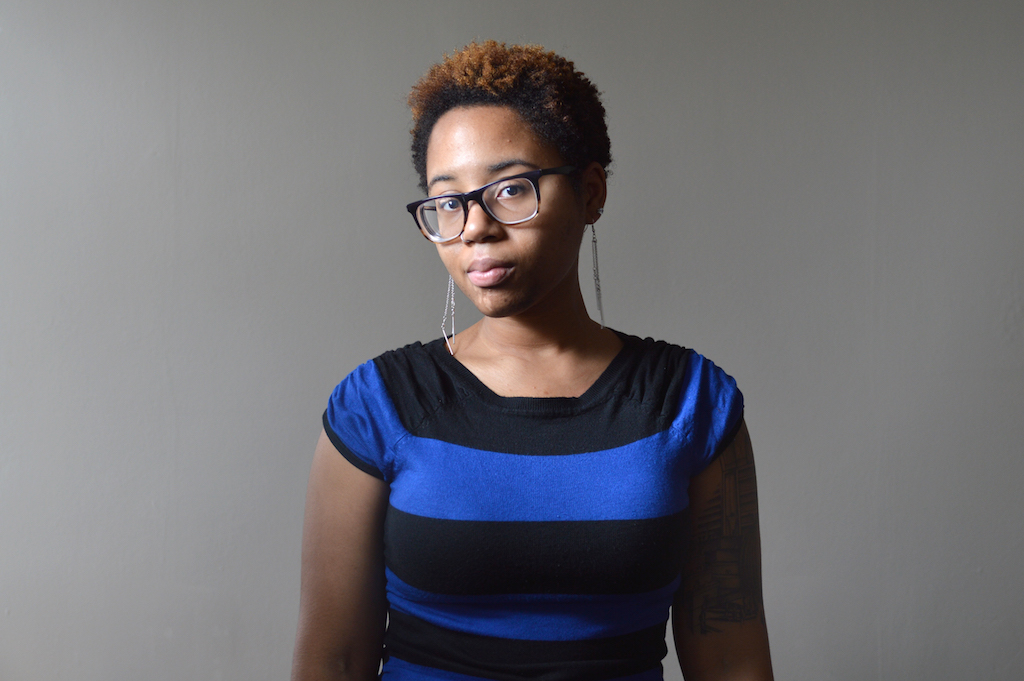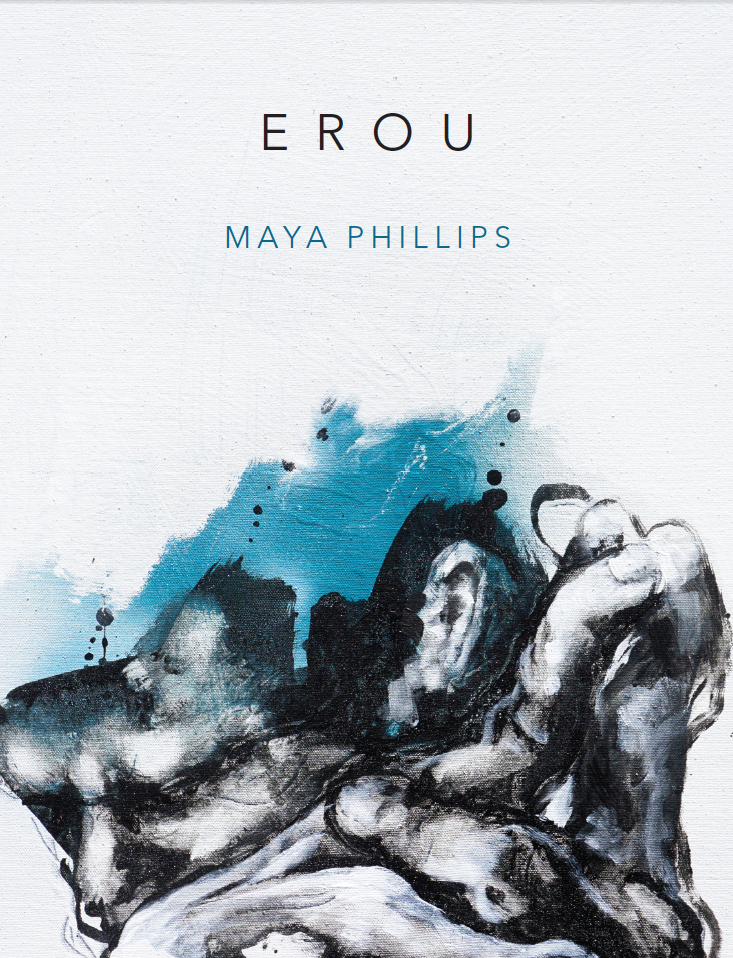I magic myself a man: ta-da! and it’s done the deed theDirty the down-there down-home hello hoe is me a bit toowitchy bitchy pussy a cooch like a clamp a clutch to turna trick a dick sick hungry woman I take and take too muchthis miss mistress distrust me disgust me wanting womanwanton woman I a mouthing a tonguing an in-cheek kindasly-slippery-snakebite of a woman bite of a woman who licks—sick, such a woman (not-wife) wily whet-thirst of a womanwith wit tits cunt we don’t like that (a woman) the wayshe walks the hips the lips surely a trick an abracadabra ta-daha! I hunger a husband (right?) I bite the beast and feast I beast-summoning woman beast-loving woman I make me a mana meal I snare I snake I hungry and I swallow whole
Circe
Feature Date
- October 2, 2019
Series
- Editor's Choice
Selected By
Share This Poem
Print This Poem
Copyright © 2019 by Maya Phillips
All rights reserved.
Reproduced by Poetry Daily with permission.

Maya Phillips was born and raised in New York. Maya received her BFA in writing, literature, and publishing with a concentration in poetry from Emerson College and her MFA in poetry from Warren Wilson’s MFA Program for Writers. Her poetry has appeared or is forthcoming in At Length, BOAAT, Ghost Proposal, Hayden’s Ferry Review, Vinyl, The Gettysburg Review, The New York Times Magazine, and The Rumpus, among others, and her arts & entertainment journalism has appeared in The New York Times, The New Yorker, Vulture, Mashable, Slate, The Week, American Theatre, and more. She is the author of the poetry collection Erou (Four Way Books, 2019). A former content editor & producer at the Academy of American Poets, Maya currently works as a web producer at The New Yorker and as a freelance writer. She lives in Brooklyn.
Maya Phillips’ stunning debut collection Erou borrows the framework of the traditional Greek epic to interrogate the inner workings of a present-day nuclear family and the role of a patriarch whose life, marriage, and death are imagined as a sort of hero’s journey. Her poems move seamlessly between the worlds of the living and the dead, between myth and reality in a journey that raises its own Homeric question: What is home and how do we locate our place within that home? These are poems of passion and compassion in their reconciliation with what cannot be changed—but can be understood—by those who have been left behind.
“Here’s a line that’s stuck in my head since reading this remarkable debut: ‘Fathered by rumor, raised / by ghost.’ It echoes the sound, subject, and sensibility of Erou. These engrossing poems bind family and myth, intimacy and allegory, ‘Gap-toothed Erou’ and ‘Erou of the forked tongue.’ The poetry of Maya Phillips is full of unforgettable imagery, word play and candor. She writes with a clarity that can cut as quickly as it calms.”
—Terrance Hayes
“The hero’s journey has never been more engaging in contemporary poetry than in Erou by Maya Phillips. Traveling between the mythical and the hyper-real, these poems make sense of a world that’s stranger than fiction and give us permission to question why our days feel like a fable. Phillips navigates between the struggles of family and the complications of love, and the quotidian challenges we must navigate in the world. With the keen eye of Robert Hayden and the lyric range of June Jordan, Maya Phillips has stepped forward with a collection of poems that’s an Odyssey for the 21st century.”
—A. Van Jordan
“Maya Phillips’s debut opens with an erasure of a passage from Homer’s Odyssey, and in doing so the classic epic of war and a long return home is reclaimed as our hero—the so-named Erou—her father, MTA worker and ‘of the school of Can’t Tell Me Nothing’’, is ferried across the River Styx at the young age of 51. These spare poems quiver with grief, but they are no mere elegies. No, they are exorcisms for the father’s infidelities and outbursts, and conjurings of his ghost as it wanders the subways and bears witness to his own autopsy. Here, you have the strange finesse of Anne Carson hammered by the hard knocks of the city and our modern times. ‘In another age,’ Phillips writes, ‘we’d have been gods, but here // we are in our mortgaged homes, rented apartments, / in our leased cars, in our morning commutes.’ What issues forth is a most courageous tenderness, the kind that acknowledges the sins of the father but with compassion as the dead remember ‘all of it, and it hurts.’ In creating this book, Phillips answers her own query- ‘After His Death Will My Father Be Beautiful’-with a resounding yes.”
—Nickole Brown
Poetry Daily Depends on You
With your support, we make reading the best contemporary poetry a treasured daily experience. Consider a contribution today.




